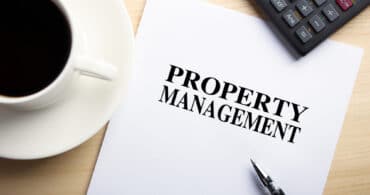How to Reduce Your Buy To Let Property Tax Bill
Being a landlord in the UK offers significant opportunities for profit. Learn actionable strategies to reduce your rental property tax bill and maximize your earnings effectively and legally.
Being a landlord has its merits and can be profitable if approached in the right way. For those looking to maximise their rental property earnings, various strategies can help, from optimising yield to reducing void periods. One critical tactic is taking advantage of legal ways to reduce your tax bill.
Understanding Rental Income Tax
What is Rental Income Tax?
All landlords are expected to pay tax on their income from any properties they rent out for profit. Whether you are a professional buy-to-let investor, renting out a property as part of your pension plan, or an ‘accidental landlord’ who has inherited a property, you need to account for tax liabilities. Ensuring your end-of-year tax returns are submitted on time and that any taxes due are paid by the relevant date stipulated by HMRC is crucial.
Strategies to Reduce Your Rental Property Tax Bill
Maximise Deductible Outgoings
Minimising tax payable always begins with maximising deductible expenditure. A range of expenses can be deducted from rental income, including:
- Property taxes
- Insurances
- Repairs and maintenance
- Utilities
- Ground rent and service taxes
- Mortgage interest
- Property management fees
- Legal and accounting fees
- Advertising and marketing
- Travel expenses associated with the rental property
Keep detailed records and receipts to offset these expenses against your tax liability effectively. For landlords with multiple properties, it may be possible to use deductible expenses from one to offset against another. Professional guidance from a financial or tax specialist is advisable to ensure all expenses are identified and handled correctly.
Claim Mortgage Interest Tax Relief
In April 2020, the law around mortgage interest claims for landlords changed. It is no longer possible to deduct all mortgage interest payments from the rental income. Instead, finance costs must be calculated to factor in the business use of the property, so the correct deductible amount can be applied.
These changes prompted some landlords to restructure their property business as limited companies to reduce increased tax liabilities and pay Corporation Tax instead. This strategy, however, is not suitable for everyone. Professional advice is crucial to ensure the correct amount of tax is paid and regulations are adhered to.
Deduct Property Management Fees
Whether you manage your own properties or delegate this responsibility to an agent, you can claim tax relief on property management costs. Property management fees that can be claimed as expenses include:
- Tenant sourcing and referencing
- Day-to-day tenant management
- Property inspections/inventories
- Property marketing
- Rent collection
Again, maintaining detailed records of your expenses is essential.
Property Maintenance and Repairs
Expenses for genuine property maintenance and repairs are fully tax deductible. Ensure that ‘maintenance and repairs’ restore the property to its original condition without increasing its value. If the work increases the property’s value, it won’t be fully tax deductible. Direct services to tenants, such as garden maintenance, cleaning, and pest control, can also be claimed as expenses. Items needing regular replacement, like kitchenware and linen, are usually subject to Replacement of Domestic Items Relief.
Ownership Structuring to Help Reduce Tax
One effective strategy to reduce rental income tax is ownership structuring. Setting up as a limited company has become popular among landlords, offering various financial benefits. As a limited company, a landlord is protected from personal Capital Gains Tax and personal financial liability. It also provides greater flexibility in distributing profits.
However, this strategy is not for everyone. Professional advice is crucial, as tax implications may not always be favourable. Consider future investment plans, the costs of running a limited company, and the statutory responsibilities involved.
Making Use of Tax Bands and Allowances
A landlord’s net rental income forms the basis for the tax liability calculation. Net rental income is the total rental income after all allowable expenses, reliefs, and allowances have been applied. Everyone has a tax-free allowance dictated by their tax code, allowing landlords to receive part of their rental income tax-free.
For landlords with additional income, strategic tax band management is essential. A professional tax adviser can help arrange finances to remain within a lower tax band, avoiding higher liabilities.
Homes2let offers a property management service that reduces the landlord burden, with an added benefit…
As a landlord, you have enough to deal with without having deal with deposit claims. So why not hand over to a property management service, but one with a clear added benefit?
The homes2let guaranteed rent scheme guarantees rental payments, even when the property is untenanted, as well as taking all the hassle of property management off your shoulders too.
Interested to discover more? You are welcome to get in touch with our expert team to discover how we can make your life as a landlord more of a breeze.
Top 5 FAQs for Reducing Your Rental Property Tax Bill
1. What expenses can I deduct from my rental income to reduce my tax bill?
You can deduct a variety of expenses from your rental income, including property taxes, insurance, repairs and maintenance, utilities, ground rent and service taxes, mortgage interest, property management fees, legal and accounting fees, advertising and marketing, and travel expenses associated with the rental property. Keeping detailed records and receipts is essential to offset these expenses effectively.
2. How does mortgage interest tax relief work for landlords?
Since April 2020, landlords can no longer deduct all mortgage interest payments from their rental income. Instead, finance costs must be calculated to reflect the business use of the property. Some landlords have restructured their property businesses as limited companies to mitigate increased tax liabilities and pay Corporation Tax instead. Professional advice is crucial to navigate these changes and ensure compliance with regulations.
3. Can I claim tax relief on property management fees if I manage the property myself?
Yes, whether you manage the property yourself or use an agent, you can claim tax relief on property management fees. This includes expenses for tenant sourcing and referencing, day-to-day tenant management, property inspections/inventories, property marketing, and rent collection. Detailed records of these expenses are necessary for claiming tax relief.
4. Are all maintenance and repair costs tax-deductible?
Expenses for genuine property maintenance and repairs are fully tax-deductible, provided they restore the property to its original condition without increasing its value. If the work enhances the property’s value, it won’t be fully tax-deductible. You can also claim expenses for direct services to tenants, such as garden maintenance, cleaning, and pest control, and for regularly replaced items like kitchenware and linen under Replacement of Domestic Items Relief.
5. What are the benefits of setting up as a limited company for my rental property business?
Setting up as a limited company can offer several financial benefits, including protection from personal Capital Gains Tax and personal financial liability. It also provides greater flexibility in distributing profits and managing income tax. However, this strategy is not suitable for everyone, and professional advice is essential to evaluate the tax implications, future investment plans, running costs, and statutory responsibilities involved.
Related Insights

What is a Property Manager and how do they Support Landlords?
Thinking of starting a property rental business and wondering whether to employ the services of a property manager? Read on to learn precisely what’s involved in a property manager’s role, and how using a property management company could benefit you as a landlord in numerous ways.

How Buy-to-Let will be Impacted by a Shrinking Economy
Landlord, letting agent or estate agency, the COVID-19 crisis will have affected you in some way. For some, the effects will have been considerable, with the financial fallout of the pandemic at the heart of the problem. But does it have to be a problem? To what extent will buy to let actually be impacted by a shrinking economy?

4 Mistakes First-Time Landlords Make and How to Avoid Them
Whilst it might sound straightforward enough to put your property on the rental market and start drawing income, there is actually quite a lot to master. Landlords often make mistakes when first starting out, some of which can lead to lost profits. Let’s take a look at some of the most common errors landlords make, and how to avoid them.







